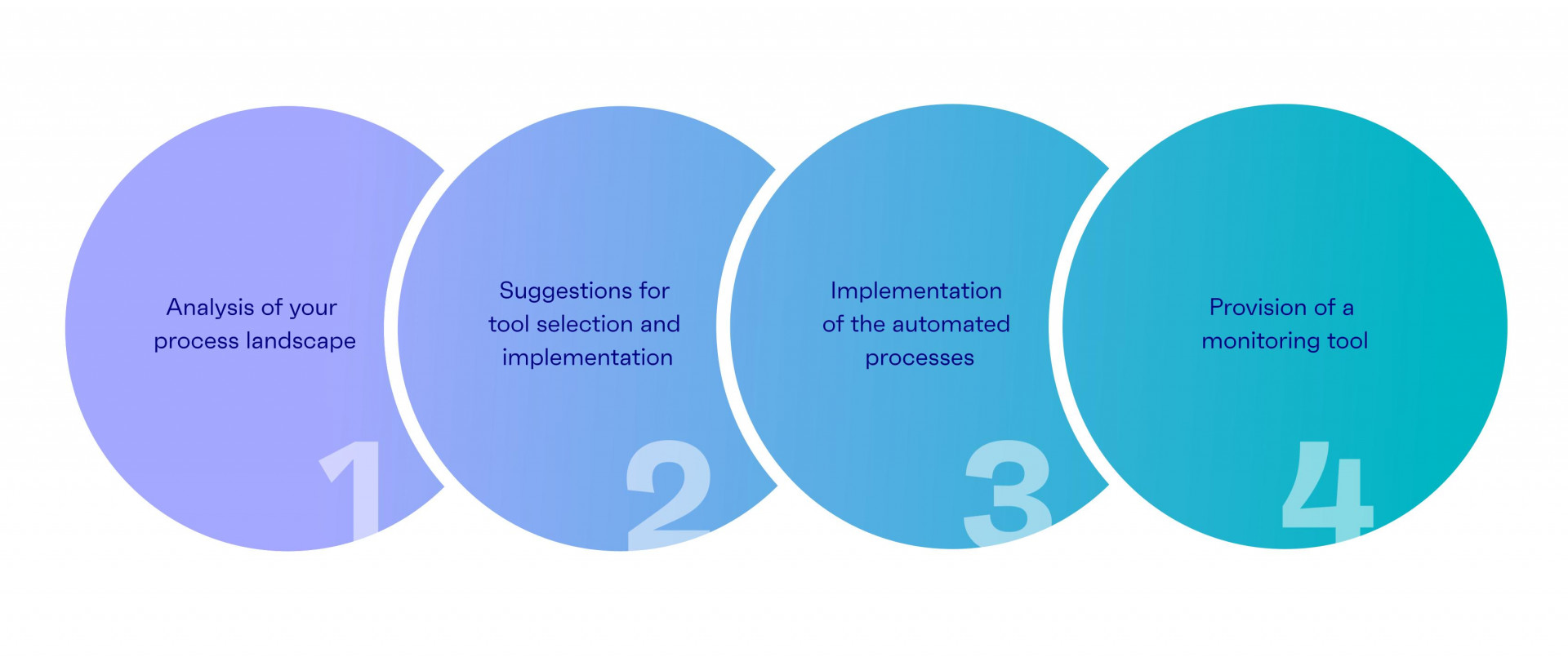
Does your organization have a lot of small-scale processes that are done manually? Does your colleague complain about the one file he has to maintain every week? Do important mails sometimes get lost in the flooded inbox?
Then process automation is your issue. Many manual steps can already be performed by software. With technological support, your customers are served faster and sources of error are reduced. Your employees are relieved of annoying routine tasks and are able to focus on promising, future-oriented activities and projects.
The process specialists at neusta enterprise services will show you which of your business processes can be automated. We make well-founded recommendations and support you in the selection of suitable tools with which you can increase the satisfaction of your teams and customers and at the same time reduce process costs.
The process is currently carried out by one employee and involves many individual work steps.
The process runs according to fixed rules, i.e. decisions can be made by the system and do not have to be discussed individually with employees.
The process repeats itself frequently. Only then is the implementation of automated solutions economical.
The process is currently carried out by one employee and involves many individual work steps.
The process runs according to fixed rules, i.e. decisions can be made by the system and do not have to be discussed individually with employees.
The process repeats itself frequently. Only then is the implementation of automated solutions economical.
In order to automate processes efficiently, there are various options. neusta relies primarily on two technologies:
In interviews and/or workshops we identify automatable processes within your organisation. These can be pre-selected processes as well as described daily processes. You show us what is currently being done in this process. We take a close look at your organisation and evaluate the work steps.
Within the framework of a concept, we work out the automated process sequence and select the appropriate technology for your organisation or division. If it turns out that individual process steps need to be reassembled, disassembled or standardised, we will also submit proposals for this. Furthermore, we represent you a first prototype for a dashboard that monitors the automated processes.
After you have agreed to our concept design, we introduce the selected software, configure it and implement the desired changes and adjustments.
As soon as all processes to be modernised have been automated, we integrate them into a dashboard that provides you with continuous reports on the status of the automated processes.
In interviews and/or workshops we identify automatable processes within your organisation. These can be pre-selected processes as well as described daily processes. You show us what is currently being done in this process. We take a close look at your organisation and evaluate the work steps.
Within the framework of a concept, we work out the automated process sequence and select the appropriate technology for your organisation or division. If it turns out that individual process steps need to be reassembled, disassembled or standardised, we will also submit proposals for this. Furthermore, we represent you a first prototype for a dashboard that monitors the automated processes.
After you have agreed to our concept design, we introduce the selected software, configure it and implement the desired changes and adjustments.
As soon as all processes to be modernised have been automated, we integrate them into a dashboard that provides you with continuous reports on the status of the automated processes.


Despite the impressive technological possibilities, we keep an eye on the people. The process specialists at neusta enterprise services speak your language and spare you the technical jargon. We identify optimisation potential, coordinate every upcoming change with you and carefully automate your workflows.